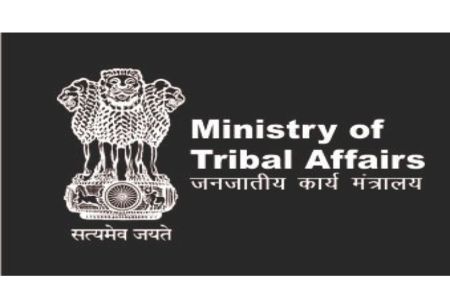
Tribal Women Entrepreneurs who are Stars of their Communities, with the Efforts of MoTA


Over the past five years, the government has taken solid steps towards strengthening women in the country, especially the rural women who had been ignored for long. Ministry of Tribal Affairs (MoTA) believe that ‘Educate a girl and you educate the entire family’, ‘Empower a woman and you empower the entire society’. Walking on this mantra for several years, MoTA has strengthened tribal women who are now paving the way for economic development in their communities.
For generations, Rakshaben Nitinbhai Patel’s (36) family in Dharampur, Valsad relied on menial jobs to fend for themselves. But for the past 10 years, the family of six has seen a total change in its finances for the better. This transformation came after Rakshaben driven by the poverty of her family was chosen by the Ministry of Tribal Affairs to train in the traditional art form Warli painting that belongs to her region, under the women empowerment scheme. Warli painting is a tribal art form practiced by the tribal communities from the North Sahyadri range in Maharashtra. Rakshaben learned the tribal art form in a local workshop organized by the Ministry. “Everybody does Warli painting in my village but they do regular stuff, I wanted to do something different in the workshop that can be sold in the market,” chirps Rakshaben. So, she started painting bamboo handicraft products like showpieces, vases, and others.
The idea clicked and now she sells over 30 exquisite hand-painted bamboo items at exhibitions organized by the Ministry of Tribal Affairs (MoTA) across India. She participates in six to seven exhibitions every year and the money earned takes care of her family’s financial needs throughout the year. “This is a drastic change from our earlier life where my parents and ancestors worked on daily wages. And I really like doing this work as there is name, fame, and income. My entire family is proud of me,” she quips. Thus, to ensure a bright future for her two kids, Patel has enrolled them in an English medium school.
Rakshaben also ensures that her good fortune benefits the entire community and teaches painting to women at local workshops organized by NGOs. “Besides training, we pay the students for the articles painted by them and these products are sold at the exhibition as well,” she says.
Similarly, Jareen, (30) who belongs to the Gujjar community from Paliur, Chamba in Himachal Pradesh is engaged in making organic products for the past five years. The idea was given to her by a foreign tourist that she diligently followed. And today with her sister-in-law Bano, she provides work to over 200 local tribal women. They make and sell organic products like flower essential oil, handmade- soaps, beeswax candles, room freshener, and others. These products are sold in MoTA’s exhibitions as well as in government showrooms. “This work has given employment to our entire community,” says Jareen. “If the government continues to support us like this, then poverty from the tribal areas will be wiped out within a year,” she adds excitedly.
Even Rajashree Rade, (30) from Vikramgad in Palghar, Maharashtra has taken her passion for Warli paintings to places. She learned the art from her husband Rajesh Rade, (32), around eight years ago. Today she makes photo frames, t-shirts, handkerchiefs, and wooden crafts with Warli painting. “At times we are also called to paint murals on government buildings,” she says. Though the lockdown put a halt on their income, it has not dampened their spirits. “We hope that the exhibitions and other activities by the government start again soon. This will provide us and our entire neighborhood some income,” she adds.
The success of these women in tribal art forms is fueling dreams of prosperity for others as well. For instance, Suman Munda, (21) from Jharkhand’s Isco village hopes that her Sohrai paintings help her become financially independent. Though she is pursuing graduation, she hopes that her training in the art form would help her in earning some income. “I have participated in some exhibitions occasionally organized by the Ministry and earned good pocket money earlier. If I get a chance to do it professionally, I would be more than happy to do so,” says Suman. Sohrai is a ritualistic art form done on mud walls by tribal women during harvest festivals.
To help women like these to have a sustainable means of livelihood, MoTA has established a Centre of Excellence (CoE) at the Associated Chambers of Commerce and Industry of India (ASSOCHAM). Under this initiative, over 1000 tribal artisans from across India will undergo skilling/ mentoring sessions to get their products market-ready both in domestic and international markets.